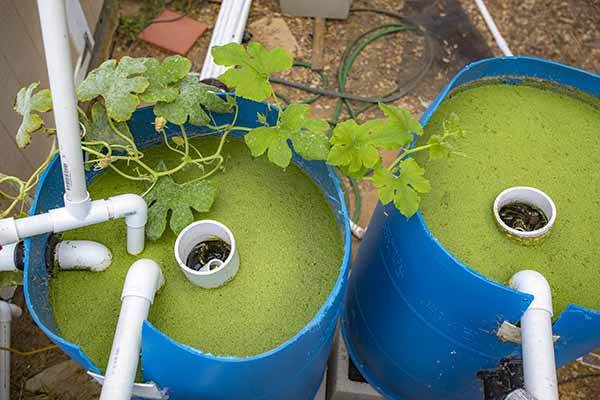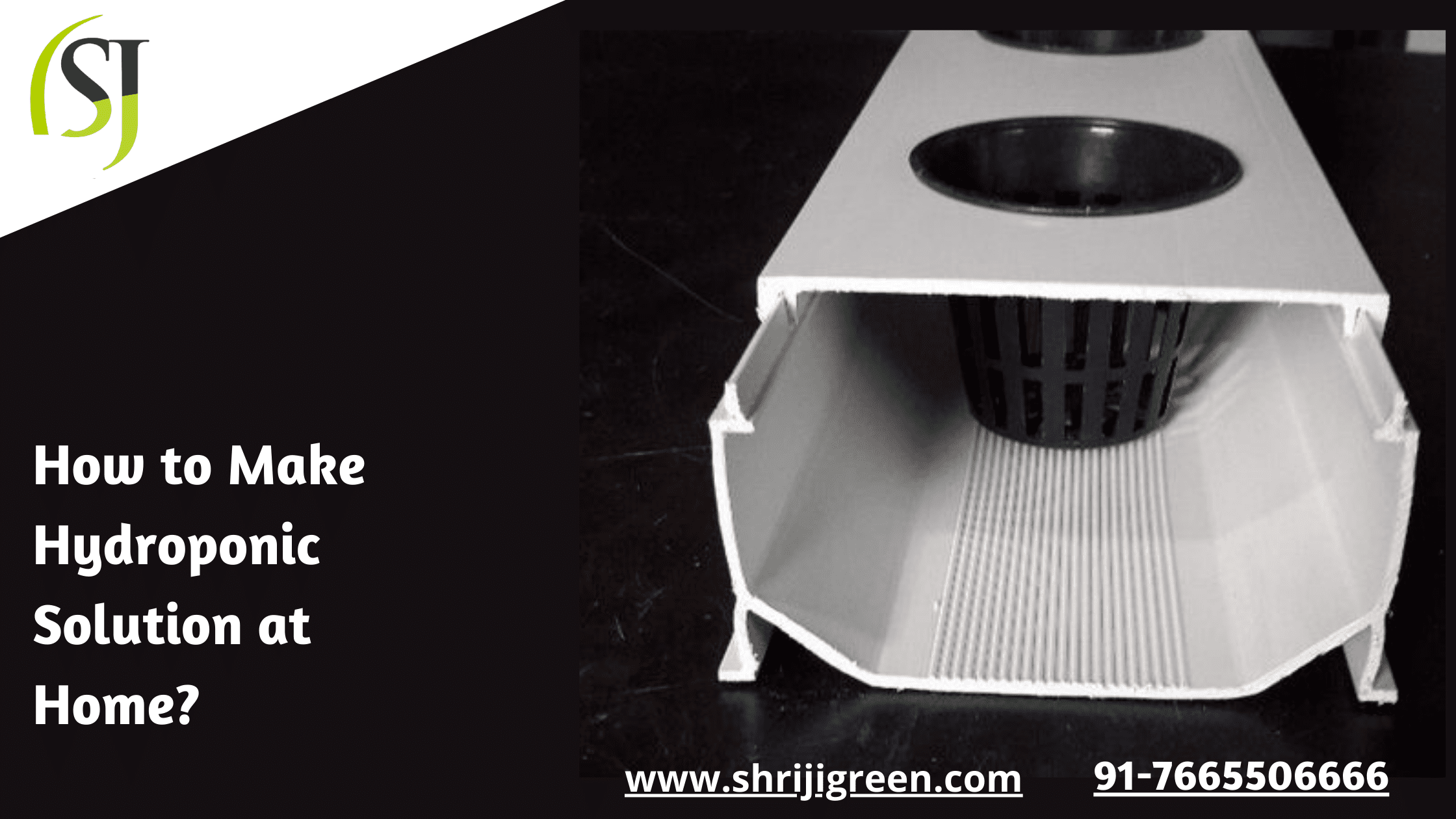To make organic hydroponic solution at home, mix water with essential nutrients like fish emulsion and seaweed extract. Adjust the pH to around 5.5 to 6.5 for optimal plant growth.
Creating an organic hydroponic solution is a sustainable way to nourish your plants. Hydroponics allows for soil-free gardening, making it perfect for small spaces. Using organic ingredients ensures that your plants grow healthily and produce safe, chemical-free food. This method enhances nutrient absorption and promotes faster growth.

Credit: www.trees.com
You can easily tailor the solution to meet the specific needs of various plants. Understanding the right balance of nutrients and maintaining proper pH levels is crucial. This guide will help you craft an effective organic hydroponic solution right in your home. Enjoy the benefits of homegrown produce while supporting an eco-friendly lifestyle.
How to Make Organic Hydroponic Solution at Home : Step by Step Guide
Introduction To Organic Hydroponics
Organic hydroponics is a method of growing plants without soil. It uses nutrient-rich water instead. Many people enjoy this method for its environmental benefits. Organic solutions are safe and healthy for plants and humans.
The appeal of organic solutions lies in their natural ingredients. They promote sustainable gardening practices. This method reduces the use of harmful chemicals. Using organic options helps in keeping plants healthy.
Basics of hydroponic systems include water, light, and nutrients. Plants need these elements to thrive. Different systems exist, like NFT and aeroponics. Each system has its own advantages and challenges.
Understanding these basics helps in creating a successful hydroponic garden. Start small and expand as you learn more.
How to Make Organic Hydroponic Solution at Home
Essential Components Of An Organic Hydroponic Solution
Creating an organic hydroponic solution requires key components. Nutrient solutions provide essential minerals for plant growth. Common sources include fish emulsion, kelp meal, and bone meal. These ingredients offer vital nutrients like nitrogen, phosphorus, and potassium.
The role of microorganisms is crucial. They help break down nutrients, making them accessible to plants. Beneficial bacteria and fungi improve soil health. This promotes a balanced ecosystem in your hydroponic setup.
Using organic materials ensures that your plants grow healthy. The right balance of nutrients and microorganisms leads to better yields. Enjoy the process of creating your own organic solution!
Creating Your Own Organic Nutrient Solution
Creating your own organic hydroponic solution is simple and fun. Start with these essential ingredients:
- Water – Use clean, filtered water.
- Fish emulsion – A great source of nutrients.
- Seaweed extract – Provides trace minerals.
- Molasses – Helps beneficial microbes grow.
- Calcium carbonate – Supports plant structure.
To mix your first batch, follow these steps:
- Measure 1 gallon of water.
- Add 1 tablespoon of fish emulsion.
- Mix in 1 tablespoon of seaweed extract.
- Include 1 teaspoon of molasses.
- Finally, add 1 teaspoon of calcium carbonate.
Stir well until all ingredients dissolve. Your organic nutrient solution is ready!

Credit: www.feathersinthewoods.com
Adjusting Ph Levels Naturally
Understanding pH is key in hydroponics. It affects nutrient absorption. A pH level of 5.5 to 6.5 is ideal for most plants.
Natural methods help adjust pH levels effectively. Use lemon juice to lower pH. Just a few drops can make a difference.
To raise pH, try adding baking soda. Mix a small amount in water, then test.
Another option is using vinegar. It can also lower pH, similar to lemon juice.
Always test pH after adjustments. Use a reliable pH meter or test strips for accuracy.
Incorporating Organic Matter
Using organic matter in hydroponics helps plants grow strong. There are different types of organic matter to include. These can improve nutrient content and soil structure.
| Type of Organic Matter | Benefits |
|---|---|
| Compost | Rich in nutrients and improves soil health. |
| Worm Castings | Great for enhancing microbial activity. |
| Seaweed Extract | Boosts plant growth and resistance to stress. |
| Bone Meal | Provides essential phosphorus for root development. |
To prepare organic solutions, mix chosen materials with water. Strain the mixture to remove solids. Dilute the solution before using it on plants. Regular usage keeps plants healthy and thriving.
Maintaining Your Organic Hydroponic System
Regular checks help keep your organic hydroponic system healthy. Look at the pH level weekly. It should stay between 5.5 and 6.5. Check the nutrient solution often to ensure it’s not too weak or strong.
Keep an eye on the plants for any signs of distress. Yellowing leaves might mean a nutrient problem. If plants grow slowly, they may need more light or nutrients.
| Issue | Possible Cause | Solution |
|---|---|---|
| Yellow Leaves | Nutrient Deficiency | Adjust nutrient levels. |
| Slow Growth | Insufficient Light | Increase light exposure. |
| Wilting | Overwatering | Reduce water supply. |
Enhancing The Solution With Beneficial Microbes
Identifying helpful microbes is key to enhancing your hydroponic solution. Bacteria and fungi are the main types of beneficial microbes. They help plants absorb nutrients and improve growth. Mycorrhizal fungi form connections with plant roots. This leads to better nutrient uptake and stronger plants.
Introducing microbes to your system can boost health. Start with compost tea or microbial inoculants. These products contain a mix of beneficial microorganisms. Dilute them in water before adding to your hydroponic system. Monitor the pH and nutrient levels regularly. This ensures the microbes thrive and support your plants.
Case Studies: Success Stories And Lessons Learned
Many people have successfully created their own organic hydroponic solutions at home. For instance, a family in California grew tomatoes using a simple nutrient mix. They used compost tea as their base, which provided essential nutrients.
Another example comes from a student in Texas. She used aquaponics with fish and plants together. This method not only saved water but also produced healthy vegetables.
Key takeaways for beginners include:
- Start small with easy-to-grow plants.
- Use natural fertilizers like compost or worm castings.
- Monitor pH levels regularly for best growth.
- Be patient; results take time.
- Learn from others’ experiences and mistakes.

Credit: www.shrijigreen.com
Frequently Asked Questions
How Do I Create A Hydroponic Solution At Home?
To create a hydroponic solution at home, mix water with essential nutrients like nitrogen, phosphorus, and potassium. You can use organic fertilizers such as fish emulsion or seaweed extract. Ensure the pH level is between 5. 5 and 6. 5 for optimal plant growth.
Stir well and use it immediately.
What Ingredients Are Needed For Organic Hydroponic Solution?
For an organic hydroponic solution, you need water, organic fertilizers, and micronutrients. Common ingredients include fish emulsion, molasses, and Epsom salt. You may also add compost tea for beneficial microorganisms. These ingredients provide essential nutrients that support healthy plant growth in a hydroponic system.
How Often Should I Change My Hydroponic Solution?
It’s advisable to change your hydroponic solution every two to three weeks. This prevents nutrient depletion and maintains optimal pH levels. Regular changes also minimize the risk of algae and pathogen growth. Monitor your plants closely to adjust this frequency based on their needs and growth rate.
Can I Use Tap Water For Hydroponic Solutions?
Using tap water for hydroponic solutions is possible but requires caution. Tap water may contain chlorine and heavy metals that can harm plants. If using tap water, let it sit for 24 hours to dissipate chlorine. Testing pH and nutrient levels is crucial for optimal plant health.
Conclusion
Creating your own organic hydroponic solution at home is both rewarding and sustainable. This process not only promotes healthy plant growth but also helps you save money. Experiment with different ingredients to find what works best for your plants. Enjoy the journey of nurturing your garden in a more eco-friendly way!

